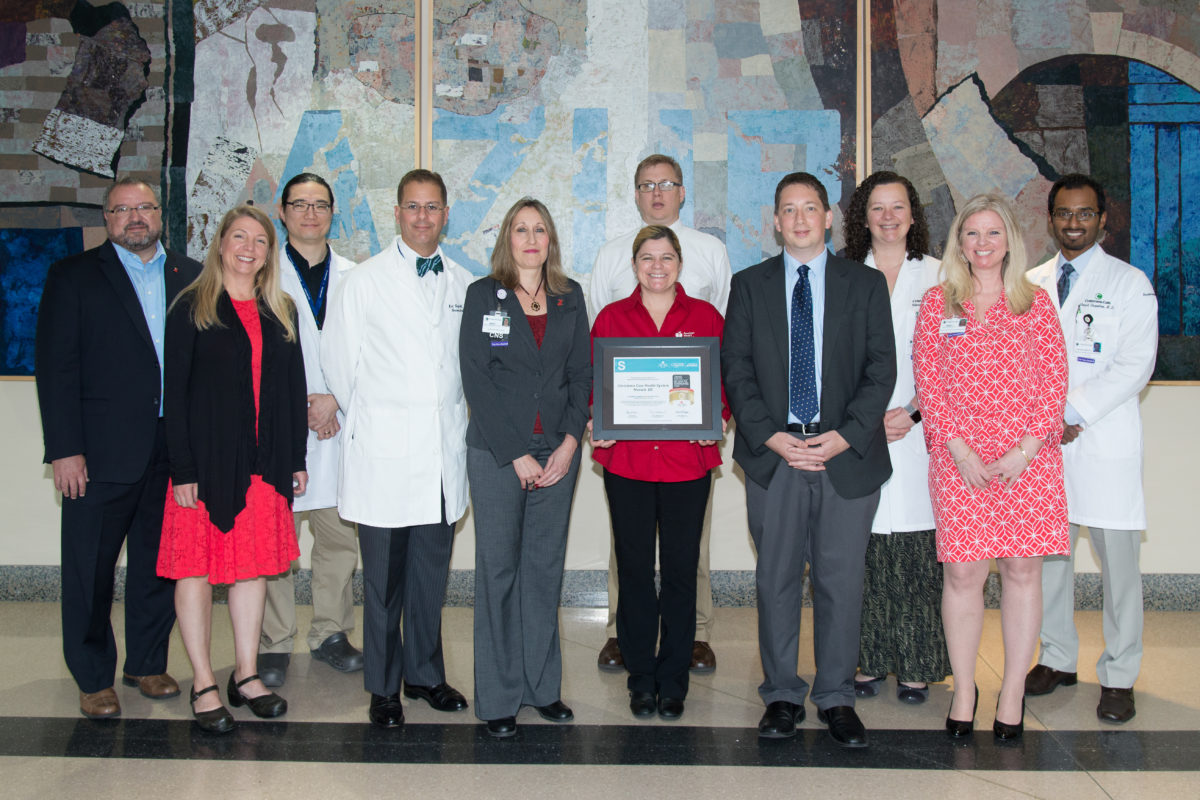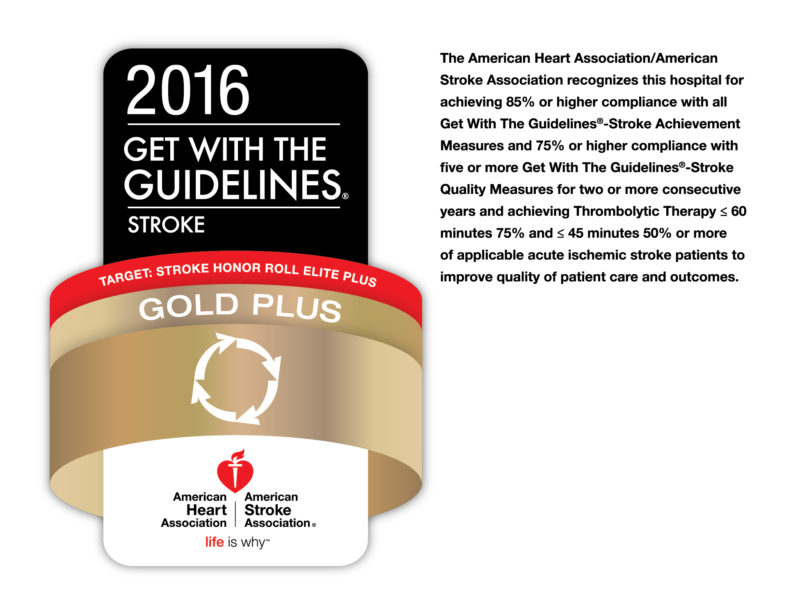Christiana Hospital joins an elite group of hospitals recognized for commitment and success in implementing a higher standard of stroke care by ensuring that stroke patients receive treatment according to nationally accepted standards and guidelines based on research and the latest scientific evidence.
Enhancing care for hospital patients and getting care to patients in the Emergency Department faster have resulted in two honors: the American Heart Association/American Stroke Association’s Get With The Guidelines Stroke Gold Plus Achievement Award with Target: Stroke Honor Roll Elite Plus.
“These awards recognize that Christiana Care provides excellent stroke care in three important areas: the Emergency Department, during the hospital stay and on discharge from the hospital,” said Jonathan Raser-Schramm, M.D., Ph.D., Stroke Program medical director. “In particular, we have exceeded the most stringent national standards in our ability to rapidly treat stroke symptoms.
“Our Gold Plus award recognizes our excellence in following national guidelines in stroke assessment and treatment after admission to the hospital, and in providing patients the best chances at recovery and preventing further strokes on discharge from the hospital.”
On average, patients diagnosed with ischemic stroke are treated with the clot-busting agent tPA with a door-to-needle time of 35 minutes, well below the national target of 45 minutes.
“Achieving Target Stroke Honor Role Elite Plus is an accomplishment we are very grateful to receive because for every minute sooner IV tPA is given, the chance of brain recovery goes up,” said Mary Ciechanowski, MSN, APRN-BC, CCRN, Stroke Program coordinator.
The initiative to get tPA to patients faster involved a comprehensive plan that includes using technology to connect stroke specialists remotely instead of waiting for them to arrive at the hospital, expedited CT scans, designated timers and reviews to analyze cases that did not proceed as quickly as expected.
Melissa Bollinger, MBA, BSN, RN, administrative director, Neurosciences, said the achievement is a group effort, including colleagues in Radiology and the Emergency Department, in addition to the stroke team.
“Numerous studies have shown that adherence to the guidelines improves outcomes,” she said. “When we participate in these programs, patients benefit.”
To receive the Gold Plus Quality Achievement Award, hospitals must achieve 85 percent or higher adherence to all Get With The Guidelines-Stroke achievement indicators for two or more consecutive 12-month periods and achieve 75 percent or higher compliance with five of eight Get With The Guidelines Stroke Quality measures.
To qualify for the Target: Stroke Honor Roll Elite Plus, hospitals must meet quality measures developed to reduce the time between the patient’s arrival at the hospital and treatment with tPA. If given intravenously in the first three hours after the start of stroke symptoms, tPA has been shown to significantly reduce the effects of stroke and lessen the chance of permanent disability.
Christiana Care has made significant strides in becoming a nationally recognized stroke center, said Kert Anzilotti, M.D., MBA, Neurosciences Service Line physician leader.
“With our Lanny Edelsohn, M.D., Neuro Critical Care Unit and the creation of the Neurosciences service line we were able to advance even further in acute stroke care,” he said. “Our commitment to comprehensive stroke care also has allowed us to attract some of the top specialists in the nation, including stroke neurologists, neurosurgeons, neurocritical care specialists and interventional neuroradiologists.”




